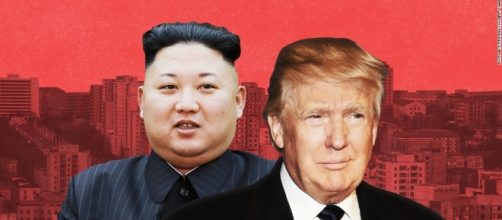The North Korea's leader first ever successful intercontinental ballistic missile launch on Monday did worse than shake strategic plans in the Pacific region. It introduced trump's first true test at a global level as he travelled to a meeting of highly experienced world leaders at the G20 summit in Germany, some of whom are eager to assist him but the best interests are not at their heart.
Trump's first real test
It introduced Trump's first true test at a global level as he travelled to a meeting of highly experienced world leaders at the G20 summit in Germany, some of whom are eager to assist him but the best interests are not at their heart.
It is a journey that is now estimated by Trump's ability to challenge North Korea's actions not only through international criticism but to promote the United States’ efforts to change the strategic plans in Pyongyang.
The task is to test Trump's ability to capture the power of the United States, to build international alliances behind US foreign policy goals, and to develop innovative political approaches that have not yet been tried and do not exactly match the 'American First' teaching that drives the president’s foreign policy.
In a single sense, July 4, the pyrotechnics of the reclusive country aroused a shocking new reality, one Trump is the first leader to face - the perception that in theory, North Korea could soon strike the United States with a nuclear missile.
However, what makes Trump’s task so difficult is an unfortunate option to stop North Korea's nuclear and missile programs. If they fail, then one unpleasant alternative would be to expect - to accept the reality that the United States is at the junctions of the Pyongyang.
Nevertheless, Trump is under strong pressure to resolve what can best be described as an insoluble and most difficult foreign policy dilemma.
Confronting North Korea's challenge
He should decide how to stand the threat of a North Korean nuclear weapons program or to prevent the use of a nuclear weapon, to actually accept that in theory that finally Pyongyang had the United States at intersections.
'There is a claim that everything has changed and everything remain the same,' according to Jim Walsh, a senior researcher at the Institute of Technology Security Studies Program, Massachusetts.
He added that adding that the test had shown new capabilities in North Korea and taken the United States across.
Considering the fact that the military moves at stopping North Korea's nuclear drive, threaten a terrible confrontation that could kill millions of people on the Korean Peninsula and beyond, President Trump has few options available on the table, but to demand a diplomatic outcome to the standoff with the isolated state.


